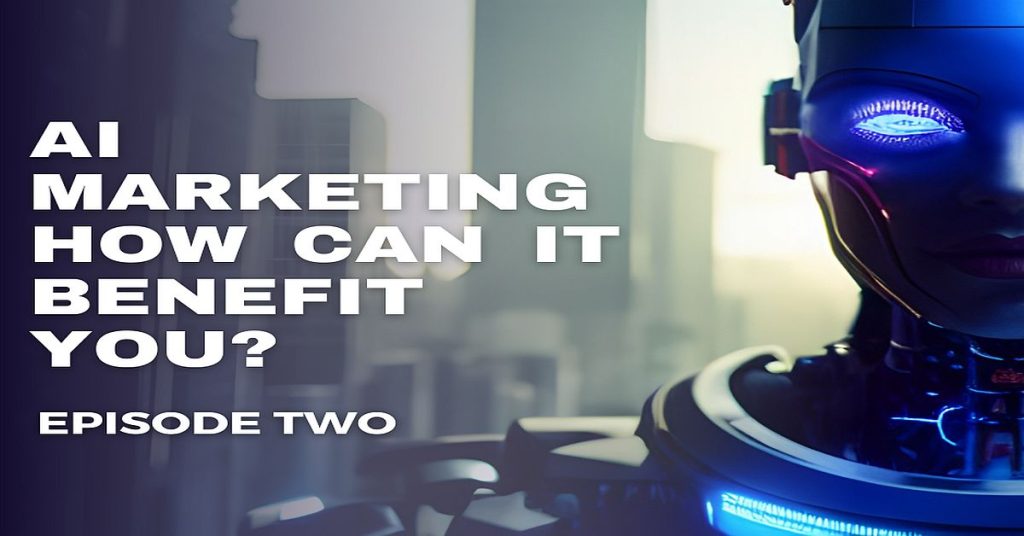As discussed in episode one, we buttressed that increasing customer expectations and fierce competition have forced businesses to turn to innovative solutions to stay competitive. The combination of artificial intelligence and digital marketing is among the game-changers. Businesses can revolutionize their marketing efforts, drive growth, and deliver personalized experiences to customers with artificial intelligence (AI).
Below are the AI marketing strategies and use cases like: Customer Segmentation and Targeting, Personalization and Customer Experience, Market Automation, Predictive Analytics and Forecasting, and Chatbots and Virtual Assistants.
Customer segmentation and targeting
AI enables advanced customer segmentation based on behavior, preferences, and demographics. It has two main strategies, namely:
Behavioral segmentation: Divide customers into distinct groups based on their behaviors, actions, and interactions with a brand. By segmenting customers based on behavior, you can tailor your marketing plans and deliver personalized messages, offers, and experiences that resonate with that specific customer groups.
Lookalike modeling: Identify new potential customers who share similar characteristics to existing customers. It analyzes customers’ data, including demographics, interests, and purchase behavior, to identify patterns and factors indicating high conversion likelihood. You can target these lookalike audiences with relevant marketing campaigns that will likely spark their interest in your products or services.
Personalization and Customer Experience
AI enables personalized experiences by analyzing customer data and delivering tailored content, recommendations, and offers. It has two main strategies, namely:
Dynamic content generation: Dynamic content generation refers to creating tailored and personalized content in real-time based on user preferences, behavior, and contextual information. Dynamically modify website elements, emails, ads, and other marketing collateral to deliver personalized experiences to your individual customers.
Personalized recommendations: Personalized recommendations involve leveraging AI algorithms to suggest products, content, or services based on personal customer preferences, purchase history, and browsing behavior. It analyzes vast data in real-time to provide highly personalized and relevant recommendations across various touchpoints. These recommendations can be based on collaborative filtering, content-based filtering, or hybrid approaches.
Marketing Automation
AI automates repetitive marketing tasks, saving time and resources. This strategy has different uses in AI marketing, such as:
Email marketing automation: It automates and optimizes various aspects of email marketing campaigns. It analyzes data such as your customers’ browsing behavior, purchase history, and preferences to deliver highly relevant and timely email content.
Social media management: It analyzes social media data, identifies trending topics, conducts sentiment analysis, and optimizes content scheduling and distribution. AI-powered social listening tools help monitor brand mentions, customer feedback, and competitor activities, providing valuable insights for strategic decision-making.
Predictive Analytics and Forecasting
AI-driven predictive analytics leverages historical and real-time data to forecast customer behavior, demand patterns, and campaign performance. It has two main applications in AI marketing such as:
Demand forecasting: Demand forecasting involves using AI algorithms and historical data to predict future customer demand for products or services. It analyzes various factors such as sales data, market trends, seasonality, and external factors to forecast demand more precisely. You can optimize inventory management, production planning, and pricing strategies. Accurate demand forecasting assists you in meeting customer needs, minimizing stockouts, reducing costs, and improving overall operational efficiency.
Churn prediction: Churn prediction identifies customers at risk of leaving or discontinuing their relationship with a brand. It analyzes customer behavior, engagement patterns, purchase history, and sentiment analysis to predict churn likelihood. By placing customers at risk of churn, you can proactively take actions to retain them, such as targeted retention campaigns, personalized offers, or improved customer service. Churn prediction helps companies to reduce customer churn and increase customer retention.
Chatbots and Virtual Assistants
AI-powered chatbots and virtual assistants provide instant customer support and engagement. They can handle common inquiries, offer product recommendations, and assist with transactions. Chatbots enhance customer experience by providing 24/7 support, reducing response times, and automating lead generation processes.
In AI marketing, chatbots and virtual assistants have several applications, such as:
Customer support automation: Customer support automation automates and enhances customer support processes. It saves time, improves response times, and provides 24/7 support, enhancing customer experience and reducing support costs.
Lead generation: Lead generation identifies and attracts potential customers interested in your products or services. Automate lead scoring, prioritize high-quality leads, and deliver personalized marketing messages by leveraging AI-powered lead generation tools. AI also lets you optimize lead nurturing strategies and improve conversion rates, ultimately driving revenue growth.
What are Ethical Considerations in AI Marketing?
One of the greatest hesitations that block most from using AI is the ethical considerations it poses. By considering ethical considerations, you ensure that AI Marketing practices respect customer privacy, uphold fairness, and foster trust. Striking the right balance between utilizing AI technologies for marketing innovation and addressing ethical concerns builds sustainable and responsible marketing tactics.
To set the record straight, here are the main ethical concerns you should watch out for when you plan to use AI tools in your digital marketing strategy.
Privacy and data protection
AI Marketing relies on vast customer data, raising privacy and data protection concerns. You must prioritize obtaining proper consent for data collection and ensure secure storage and responsible handling of customer information. Transparent privacy policies and compliance with data protection regulations are essential.
Bias and fairness
AI algorithms are trained on existing data, which may contain biases. Addressing and mitigating biases is crucial to ensure fair and equitable outcomes. Regular audits of AI models, diverse training datasets, and ongoing monitoring are necessary to prevent discriminatory practices and ensure fairness in targeting, recommendations, and decision-making.
Transparency and explainability
AI-powered marketing systems should be transparent and explainable to build trust with customers. Clear communication about the use of AI, its purpose, and the data collected is vital. It’s essential to explain when AI-driven decisions impact customers and offer avenues for recourse or clarification.
Consumer empowerment and consent
Empowering consumers with control over their data and marketing preferences is essential. Businesses should enable customers to manage their data. Transparency in how customer data is used and empowering individuals to make informed choices is crucial.
Accountability and oversight
Establishing accountability and oversight mechanisms for AI Marketing is a must. Businesses should have processes to regularly evaluate AI systems for ethical considerations, monitor their performance, and address any issues that arise. Ethical guidelines and internal policies should guide AI deployment and usage.
The Future of AI Marketing
Much like us, AI is still learning and advancing. And while there are limitations, without a doubt, this tool is not just a passing trend but a necessity to succeed in the competitive industry.
The future of AI Marketing is incredibly promising, with continued advancements and transformative potential. Here are some key aspects that are predicted to shape the future of AI Marketing:
Hyper-Personalization
AI will enable even more granular personalization, with tailored experiences anticipating individual customer needs. Advanced algorithms and real-time data analysis will allow you to deliver highly personalized content, product recommendations, and offers, fostering stronger customer connections and driving engagement.
Voice and Visual Search
The rise of voice-activated assistants and smart speakers will drive voice search integration into marketing strategies. AI-powered visual search capabilities will also become more prevalent, enabling users to search for products or information using images. Optimizing voice and visual search marketing efforts will be crucial to staying relevant in this evolving landscape.
Enhanced Customer Engagement
AI will continue to revolutionize customer engagement. Chatbots and virtual assistants will become more sophisticated, providing seamless and personalized interactions across various touchpoints. AI-powered sentiment analysis will enable businesses to understand customer emotions and respond empathetically, enhancing engagement.
Data-Driven Decision-Making
AI’s ability to analyze vast amounts of data will continue to drive data-driven decision-making in marketing. AI-powered predictive analytics will become more accurate, enabling marketers to anticipate customer behavior, optimize campaigns, and allocate resources effectively. Real-time data insights will empower agile marketing strategies and faster adaptation to changing market dynamics.
Marketing Automation and Efficiency
AI will further streamline and automate marketing processes, freeing marketers’ time for strategic initiatives. Advanced automation tools will optimize email marketing, social media management, content creation, and campaign optimization. Marketers will focus more on creativity and strategy, while AI handles repetitive tasks and data analysis.
Ethical Considerations and Trust
As AI Marketing evolves, ethical considerations will become increasingly important. Striking the right balance between personalization and privacy, addressing biases, ensuring transparency, and building trust with customers will shape the future of AI Marketing. Businesses that prioritize ethical practices will differentiate themselves and build stronger customer relationships.
The future of AI Marketing holds immense potential for businesses to create hyper-personalized experiences, optimize decision-making, and foster deeper customer engagement. Embracing AI technologies, staying ahead of emerging trends, and navigating ethical considerations will be critical for organizations leveraging AI’s transformative power in their marketing strategies.
Generate your Business’ Success with AI Marketing
AI marketing is revolutionizing how you connect with your audience. Embracing this tool is not just a passing trend; it’s a crucial step toward maintaining competitiveness in today’s digital landscape.
You can unlock deep customer insights, identify patterns, and make data-backed decisions by harnessing AI-powered analytics. Personalization becomes seamless as algorithms tailor experiences and recommendations for each customer. Finally, marketing automation streamlines repetitive tasks to free your time for strategic planning and creative endeavors. You can even use AI to generate a domain name or write copy for your website!
Generate your success in the future by incorporating AI marketing into your business today and elevate your brand to unforeseen heights.

